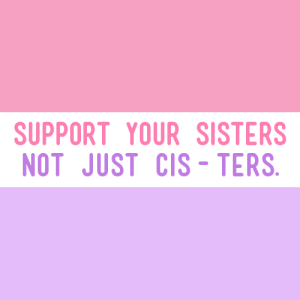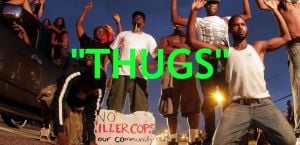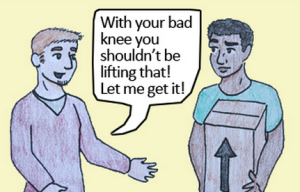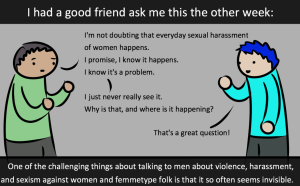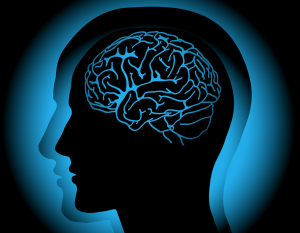Have you daydreamed about unleashing your inner magic to bring down the Death Eater, white supremacist, capitalist heteropatriachy?
Do you yearn to be part of a movement that is building up liberatory power to help free us all?
Me, too.
I long to see a world free of structural inequality and aspire to come alive into the beauty and joy of beloved community. However, when navigating so many complex and intersection systems of oppression, it can sometimes it can be hard to maintain hope and truly believe that the world in our hearts can be realized.
Over the years, I have found great inspiration and insight from pop culture, and one of the greatest source of both of these, is the magical world of Harry Potter.
While it is absolutely necessary that we develop a clear analysis of the problems we face and then create strategies to move us forward, I also believe we need to access our inner superpowers and unleash the power of magic in our movements for collective liberation.
Here are my top lessons for social justice organizing from Harry Potter, to help us all get free.
1. Getting Free from Voldermort’s Voice of Oppression in Our Heads
Voldemort and the Death Eaters want to impose pure-blood supremacy in the magical world as a means to consolidate their power. Their strategy follows a familiar logic:
a. Organize society into classes according to socially perceived biological differences.
b. Criminalize those on the margins, those born of muggle parents, like Hermione.
c. Position themselves as the defenders of Tradition and the Natural Order.
d. Divide society according to socially perceived biological differences and political loyalty.
e. Use fear and hate to weaken the bonds of solidarity throughout society, while simultaneously uniting the right.
f. Fight the Left, take power, and remake the world in their own image.
But that’s not all.
Just as many of us come into activism through our growing awareness of injustices in society, such as economic inequality, war, sexism, and racism, Harry comes into activism through his growing awareness of Voldemort’s evil.
But over time, Harry realizes that Voldemort is also inside his head.
While activists can and must be literate in the ways that white supremacy creates profound disparity of access to resources, we also come to find that white supremacy is inside our heads.
For those of us who are people of color, it shows up as internalized inferiority. And for those of us who are white, as internalized superiority. Voldemort, like the real-world systems of oppression we are up against, is both a force in the world structuring our society and inside our heads.
Voldemort’s influence leads Harry into the battle at the Ministry of Magic, which results in Sirius’s death, fueling Harry’s anger which isolates Harry from his comrades.
In order to effectively take on Voldemort in the world, Harry must come to consciousness about the Voldemort in his head and resist his influence.
When Harry directly challenges Voldemort in the world, Harry is able to free his mind of Voldemort.
On the flip side, as Harry becomes more aware of his connection with Voldemort, he is able to gain insights into Voldemort’s logic and plans. Similarly, through reflection and awareness, we can draw lessons on how oppression operates and use those lessons to help develop liberation movement.
2. The Power of Love as the Practice of Freedom
Harry often struggled to see the power of love, as revenge and anger weighted his motivation. But while anger helped bring him into the struggle, just as it brings many of us into social justice work, it couldn’t sustain him or ultimately help him achieve his larger goals.
After Dumbledore and Voldemort duel in the Ministry of Magic, Voldemort possesses Harry’s mind and tells Dumbledore and Harry that their defeat is imminent. Voldemort declares that Harry’s efforts will fail and fills his mind with images of the horrors that will engulf the world.
As Harry struggles in anguish, lying on the floor, Dumbledore whispers to him, “Harry, it isn’t how you [and Voldemort are alike]. It is how you are not.”
Harry then sees Hermione, Ron, Ginny, and others enter the room and his mind fills with images of loving embraces with his family and friends, of his beloved community.
At this juncture, Harry responds to Voldemort, telling him, “You’re the weak one, and you will never know love or friendship. And I feel sorry for you.”
Through reconnecting with his values and his community, Harry accesses the power of love, repels Voldemort, and finds his courage for the fight ahead.
Anti-racist, feminist, and socialist scholar bell hooks speaks of love as the practice of freedom. What we are up against is daunting and, at times, voices in our heads tell us that we will be defeated or even that we already are.
hooks, in her book Outlaw Culture, asks us to take up work against injustice in the spirit of Dr. King who said, “Our goal is to create a beloved community, and this will require a qualitative change in our souls as well as a quantitative change in our lives.”
The love of Harry’s mother and father was a source of power that healed and emboldened Harry. The more he opened himself to their love, the more he was able to powerfully act from love.
In our social justice movement, when we are tired, weary and beat down, we must let the love of our ancestors heal and embolden us. The extent to which we are disconnected from their love and our own ability to love is the extent to which Voldemort influences us.
Voldemort might be in our heads. But ultimately, how we are different from systems of oppression, how we love, is what is of utmost importance.
3. Expecto Patronum – Letting Our Light Shine
Dementors are all around us, from pundits on Fox News to Internet trolls who fill the comments section on blogs and Facebook with name-calling and insults.
But a Patronus charm conjures up a protective guardian, taking the shape of an animal that can repeal Dementors that suck the life out of us. The incantation, as Professor Lupin explains, will only work if you are concentrating on a very happy memory, which later we learn must be a memory rooted in love.
Our casting a Patronus mobilizes love as the practice of freedom that connects us to our power and expresses it in the world. All of us must work to connect to our own inner power, our own happiest of memories, and our own calling into courageous action.
As liberation organizers, our responsibility is to foster culture and practices that light up the world with our collective Patronus charms.
When everyday people in the Civil Rights movement sang “This Little Light of Mine, I’m Going to Let it Shine” in the face of violent police, or today when Black Lives Matter activists lead the Assata Shakur, “It Is Our Duty to Fight for Our Freedom” chant, in the face of state violence and racist threats, Patronus charms are at work.
People are connected to a deeper collective power that not only gives them the courage to act, but communicates the power of love over white supremacist violence to the world.
We can create a wide variety of such collective practices and rituals that help us step into loving liberatory power. That power removes Dementors and helps us be bold for justice.
4. Hogwarts, the Order of the Phoenix, and Building Movements for Justice
Hogwarts is where young witches and wizards are educated and brought into the magical world. It is here they can be who they are, develop their powers, and be with peers, friends, teachers, and mentors.
While a plurality of ideals exists at Hogwarts, the institution is nevertheless deeply influenced by its Headmaster, Dumbledore – a queer, critical educator and a leader of the anti-Voldemort Order of the Phoenix.
The struggle over Hogwarts is ultimately a struggle over whose values will shape the common sense understandings of society.
On the eve of the final showdown, when the Left retakes Hogwarts as Dumbledore’s Army unites with the Order of the Phoenix, everyone regardless of where they stood before must decide on which side they stand.
With the neighboring town of Hogsmeade, Hogwarts becomes a bastion of the anti-Voldemort movement, and the power of the institution and its communities are aligned with the Left and in motion to fight back.
Five key lessons emerge.
First, we must assess the institutions in society, determine which ones have the most liberatory potential, and actively support efforts to govern them from the Left and marshal their powers to further social justice.
Through our work, our values can shape the institutions and influence the common sense understandings in society.
Second, we need autonomous Left organizations like the Order of Phoenix to keep us guided by a larger vision, unite people across many institutions and communities with shared values and strategy, and take actions beyond the constraints institutional positions have on us.
For instance, Kingsley Shacklebolt must play a limited public role in the fight against Voldemort through his position at the Ministry of Magic, but he is able to share information gathered at the Ministry with the Order of the Phoenix and is able to take direct action against Voldemort as a member of the Order.
Third, we must be mindful of entry points for people to get actively involved in social justice efforts. We should support those entry points with people who have experience and connections in the broader movement, so that when new people come to consciousness they are adequately supported.
We need more organizations like the Order of the Phoenix to help connect highly motivated and committed new activists (like Harry, Hermione, and Ron) with experienced activists and a larger multigenerational community of social justice thinkers and activists.
Fourth, there will be times, like the battle at Hogwarts, or Occupy Wall Street or the Black Lives Matter movement, where large numbers of people, previously uninvolved, will take sides and fight back.
They might not all be involved for the same reasons, but their involvement is what turns the struggle into a mass movement potentially capable of making the systemic changes for justice we want and need.
As we do the day-to-day work of social justice organizing, we must remain nimble in times of mass involvement so that we can be expansive in a new phase of mass participation.
Fifth, as with Severus Snape and Draco Malfoy, there will be divisions among our opposition. Malfoy, after years of being Harry’s arch-nemesis, doesn’t turn Harry over to Voldemort at Malfoy Manor. Draco’s mother boldly protects Harry in the final hour by lying to Voldemort, a move that sets the Death Eaters up for their final defeat. For Snape, it is love for Lily, not the Order and its mission, which converts him.
In social justice organizing, the hearts of our opposition can change and that a victory is won not just when they agree with our politics, but when in some significant way, they transcend and help us move forward.
5. The Importance of Hermione Granger’s Feminist Leadership
Hermione is a brilliant witch, passionate about challenging injustice, a book nerd, and she is, essentially, the catalyst who turns the anti-Voldemort struggle into a movement rooted in the aspirations, urgencies, and power of young people.
Hermione is the Ella Baker of the wizarding world.
Harry primarily sees the struggle against Voldemort and the Death Eaters as his own personal mission. But it is Hermione who understands the struggle must be rooted in grassroots community power.
When the centrist-right Dolores Umbridge prevents students from using magic in their Defense Against the Dark Arts classes, Hermione sees the opportunity to build that power. Using her relationships with students in Gryffindor, Hufflepuff, and Ravenclaw, Hermione brings together thirty students to initiate a secret class taught by Harry.
Leadership is often thought of as courageous public acts by individuals, acts much like those taken by Harry. However, grassroots movements are built through the leadership of people like Civil Rights organizer Ella Baker, a pioneer who built relationships with people and who supported people to believe in their own abilities to collectively solve the problems before them.
Hermione’s is a feminist leadership of building power with others, rather than over them.
It is a leadership based in respect earned through years of building positive relationships, providing support and encouragement, and consistently acting in a principled way.
Hermione’s leadership also comes out of her experience of being an outsider, a muggle-born witch. She used her outsiderness to better understand how the system works and with whom she is allied.
In the Black Lives Matter movement, Alicia Garza, Patrisse Cullors, and so many others, are showing us what courageous, public, building power with, charismatic, feminist leadership, unleashing the power of movement magic, looks like.
6. Dumbledore’s Army as a Model for Building Movements That Can Win
As members of Dumbledore’s Army trained during one of their underground Defense Against the Dark Arts classes, Harry boldly declared, “Every great wizard in history has started out as nothing more then what we are now: students. If they can do it, why not us?”
Today, as we look back at the great leaders of our social justice movements, we can get awe-struck and place them on pedestals to be idolized rather than draw inspiration from their example to become extraordinary ourselves, including from the organizations that helped support them along the way.
Too often, we hear about Rosa Parks as the woman too tired to move to the back of the bus, rather then Rosa Parks the revolutionary who was the secretary of the local NAACP who, just a few months before her history-changing action, had gone through non-violent direct action training at the Highlander Center. Nor do we learn about the Women’s Political Council who helped organize the Black community within 24 hours of Park’s arrest.
In Harry Potter, Dumbledore’s Army created a space for collective praxis to emerge. As Harry said, none of the other students had the experience of going up against Voldemort. They only had lessons learned in a classroom.
But leadership is born of values joined with experience and that is why it is no coincidence that Ginny, Neville, and Luna became the primary leaders of the DA when Hermione, Ron and Harry went underground and Hogwarts was taken over by the forces of Voldemort. It is the DA that creates opportunities for more and more people to practice and mature.
Ginny’s leadership was rooted in being raised in a working class family guided by Left values and a practice of solidarity (earning them the label “blood traitors”). It is, however, through her participation in the DA that Ginny moved from being a supporter of the Left to being a leader in the fight against Voldemort.
Neville and Luna Lovegood similarly find entry points into the struggle through the DA, transforming them from weirdo outsiders into courageous, core leaders who keep hope alive during Voldemort’s rule.
An important dimension of organization and collective efforts is that they consistently generate open space for more and more people to play key roles.
This is important for Ron and Harry. In the early years, Ron grew increasingly jealous of Harry’s public persona and popularity. At the same time, Harry became increasingly self-centered at times.
This often happens in our social justice work. Ego, jealously and rivalry can often hurt our efforts and destroy relationships.
But as the DA took form, Ron was able to play important public roles bringing others into the group. When they began to pay attention to the needs of the dozens of students who were hungry for leadership and opportunities, Ron and Harry let go of petty grudges and exaggerated hurts.
Fighting for justice and collective liberation is deeply challenging and we need our friends and comrades.
Harry and Ron need each other, not just because they are stronger together against Voldemort, but because the love of our family, friends and communities is the magic of life and that love is what makes facing the challenges so rewarding.
The Magic of Taking Action for Social Justice
Social justice organizations and communities, from the Black Lives Matter movement and chapters, to our progressive places of worship, to SURJ (Showing Up for Racial Justice) or the Harry Potter Alliance, help us support each other to – as Dumbledore says – do what is right, rather than what is easy.
They help us live our values and develop grassroots power to help us expand justice and equality for all.
We must join collective efforts, support them, work alongside them, and help create an ecosystem of social justice organizations, institutions, communities, crews, families, and relationships that form movements that can win.
Let’s bring forward the magic of social justice organizing to liberate us from the Voldemorts in the world and in our heads. Let us create magic together and act courageously from a place of love for collective liberation.
Thank you to my lovely team of fellow Order of the Phoenix members for their editorial feedback, contributions and help: Rahula Janowski, Nisha Anand, Marc Mascarenhas-Swan, Caroline Picker, Morrigan Belle Phillips, Chris Dixon, April Caddell, Christina Aanestad, Liz Crockett Hixon, Aletha Fields, Jezebel Delilah X, and Margaret Ernst.
Like this article? Check out Towards the Other America: Anti-Racist Resources for White People Taking Action for Black Lives Matter for more social justice magic!
[do_widget id=’text-101′]
Chris Crass writes and speaks widely on anti-racist organizing, feminism for men, strategies to build visionary movements, and creating healthy culture and leadership for progressive activism. His latest book Towards the Other America: Anti-Racist Resources for White People Taking Action for Black Lives Matter was just published and can be ordered as a free e-book or a for purchase print book at www.chalicepress.net/OtherAmerica. You can learn more about his work at www.chriscrass.org.
Search our 3000+ articles!
Read our articles about:
Our online racial justice training
Used by hundreds of universities, non-profits, and businesses.
Click to learn more
Most Read Articles
- « Previous
- 1
- …
- 30
- 31
- 32







